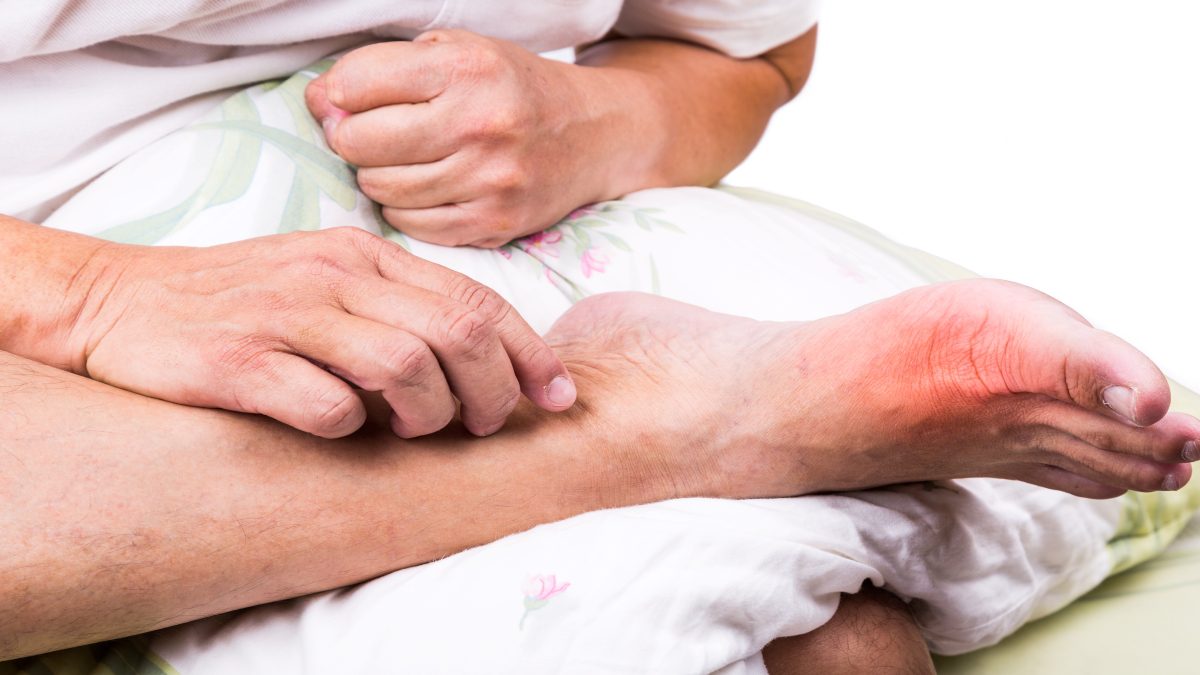Treatment of gout
To treat gout, physicians usually prescribe medications. The medication used depends on the patient’s health and also on the patient’s preferences. Medicines for gout may be used to treat acute episodes and also to help prevent attacks from occurring in the future. There are also drugs available to help reduce the risk of complications due to gout.
Medications for gout treatment
Certain medications are used to treat the pain and inflammation of an acute attack of gout as well as to help prevent future episodes from occurring. Such gout medications include:
- Nonsteroidal anti-inflammatory drugs (NSAIDs): These medications can help those experiencing a current gout episode by decreasing the inflammation and pain in the affected joint or joints. They can also help prevent recurring attacks of gout. Physicians sometimes prescribe a higher dose of medication during an acute episode and a lower preventative dose. Some NSAIDs are available without a prescription. These include ibuprofen (Motrin, Advil, and others) and naproxen (Aleve and others). Stronger, prescription-strength NSAIDs include drugs such as indomethacin (Indocin). Potential side effects of NSAIDs, both prescription and over-the-counter, include bleeding, stomach pain, and ulcers.
- Colchicine: This medication is sometimes prescribed for patients with gout who cannot tolerate NSAIDs. Colchicine (Colcrys) is an analgesic (pain reliever) that relieves the gout pain, especially if it is taken as soon as the symptoms appear. It can also help prevent an acute episode’s recurrence, so it is sometimes prescribed in a small daily dose. Colchicine causes side effects for many people, including diarrhea, nausea, and vomiting.
- Corticosteroids: These medications are usually only prescribed for patients who cannot tolerate either colchicine or NSAIDs. They control the pain of gout by decreasing inflammation in the affected joint or joints. Corticosteroids can be taken by mouth as a pill, or they can be injected directly into the joint. Side effects of corticosteroids include a decreased ability to fight infection, thinning of the bones, and poor wound healing. These are serious side effects, so physicians prescribe the lowest possible dose for the shortest possible length of time.
Prevention of gout complications
Your physician may suggest you take medication to decrease your risk of developing complications related to gout if you have extremely painful attacks or if you have several attacks per year. These medications may include:
- Xanthine oxidase inhibitors: These medications block your body’s production of uric acid. Examples include allopurinol (Aloprim, Lopurin, Zyloprim) and febuxostat (Uloric). Side effects of febuxostat include reduced liver function, nausea, and a rash. Allopurinol may cause side effects, including low blood counts and a rash. If these drugs are taken before a recent attack has completely been resolved, they may actually cause the onset of another attack.
- Probenecid (Probalan): This prescription medication works in the kidneys to increase the amount of uric acid removed from your blood. This can lower your risk of gout, but it increases the amount of uric acid in your urine. Side effects of probenecid include kidney stones, stomach pain, and a rash.
Prevention
The following suggestions may help protect you from future attacks of gout:
- Drink plenty of healthy fluids: Set your goal between 8 and 16 cups of fluids daily. That’s 2 to 4 liters. At least half of what you drink should be water. Avoid sweetened beverages, especially those containing fructose and high fructose corn syrup.
- Avoid or limit alcohol: Find out from your doctor if any kind or amount of alcohol is safe for you. There is now some evidence that beer may be especially likely to increase the risk of gout in men.
- Eat healthy every day: Your daily diet should be made up mainly of vegetables and fruits, whole grains, and low or no-fat dairy products.
- Choose low or no-fat dairy: This is worth repeating! Low-fat milk and milk products may protect you from gout. Choose your protein from this food group.
- Limit your intake of poultry, meat, and fish: You may be able to eat these in small amounts but get most of your protein from other sources. Keep track of what causes problems for you and always avoid those.
- Maintain a healthy body weight: Fasting and rapid weight loss can raise uric acid temporarily, so if you need to lose weight, do so safely. If you’re overweight, losing pounds may help lower uric acid levels.
















Leave a Reply
You must be logged in to post a comment.